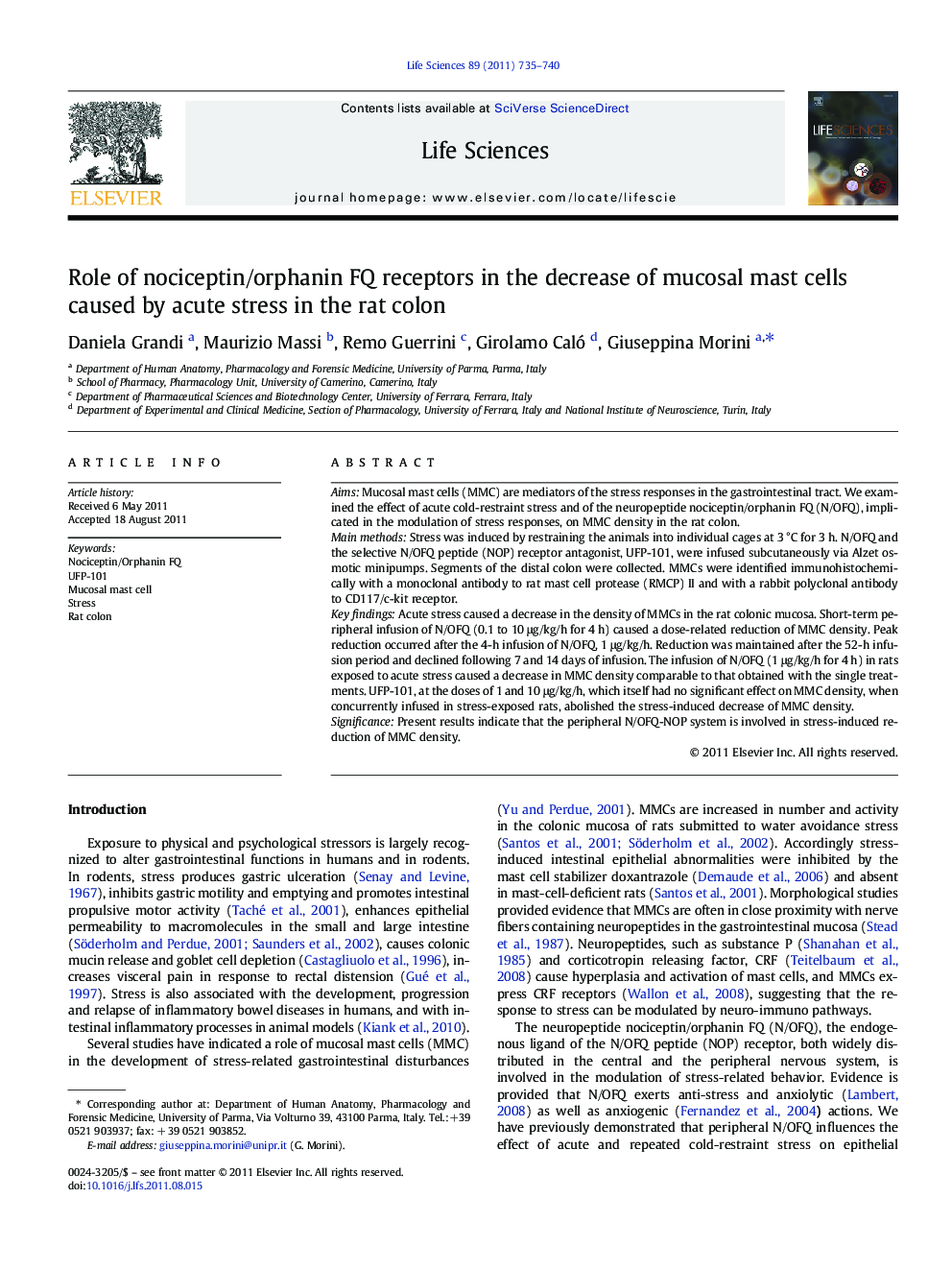| Article ID | Journal | Published Year | Pages | File Type |
|---|---|---|---|---|
| 2551998 | Life Sciences | 2011 | 6 Pages |
AimsMucosal mast cells (MMC) are mediators of the stress responses in the gastrointestinal tract. We examined the effect of acute cold-restraint stress and of the neuropeptide nociceptin/orphanin FQ (N/OFQ), implicated in the modulation of stress responses, on MMC density in the rat colon.Main methodsStress was induced by restraining the animals into individual cages at 3 °C for 3 h. N/OFQ and the selective N/OFQ peptide (NOP) receptor antagonist, UFP-101, were infused subcutaneously via Alzet osmotic minipumps. Segments of the distal colon were collected. MMCs were identified immunohistochemically with a monoclonal antibody to rat mast cell protease (RMCP) II and with a rabbit polyclonal antibody to CD117/c-kit receptor.Key findingsAcute stress caused a decrease in the density of MMCs in the rat colonic mucosa. Short-term peripheral infusion of N/OFQ (0.1 to 10 μg/kg/h for 4 h) caused a dose-related reduction of MMC density. Peak reduction occurred after the 4-h infusion of N/OFQ, 1 μg/kg/h. Reduction was maintained after the 52-h infusion period and declined following 7 and 14 days of infusion. The infusion of N/OFQ (1 μg/kg/h for 4 h) in rats exposed to acute stress caused a decrease in MMC density comparable to that obtained with the single treatments. UFP-101, at the doses of 1 and 10 μg/kg/h, which itself had no significant effect on MMC density, when concurrently infused in stress-exposed rats, abolished the stress-induced decrease of MMC density.SignificancePresent results indicate that the peripheral N/OFQ-NOP system is involved in stress-induced reduction of MMC density.
